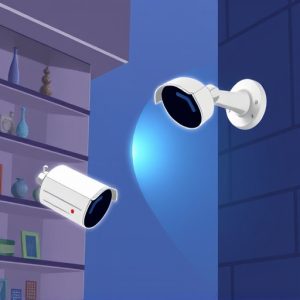In today's digital age, home security has evolved from basic locks to sophisticated smart systems. These systems offer 24/7 monitoring, real-time alerts via smartphones, and advanced features like motion sensors, cameras, and automated door locks. Integrating AI-powered devices provides peace of mind by learning household behaviors and distinguishing normal activities from potential intrusions. Centralized control through a single interface ensures convenience, while encryption, multi-factor authentication, and regular updates safeguard personal data. The future holds smarter, more integrated home security solutions leveraging AI, facial recognition, voice control, 5G technology, and interconnected devices for enhanced safety and monitoring.
In today’s digital age, modern homes demand advanced security solutions that offer both convenience and peace of mind. “Smart home security solutions for modern convenience” explores the evolving landscape of home protection. We delve into understanding the unique security needs of contemporary households, leveraging smart technology to fortify defenses, and uncovering the extensive benefits of integrated systems. From essential components to enhancing privacy and data security, this article navigates the comprehensive guide to securing your sanctuary in the digital era.
- Understanding Modern Home Security Needs
- The Role of Smart Technology in Home Protection
- Benefits of Integrated Home Security Systems
- Essential Components for a Comprehensive Home Security Suite
- Enhancing Privacy and Data Security Measures
- Future Trends in Smart Home Security
Understanding Modern Home Security Needs
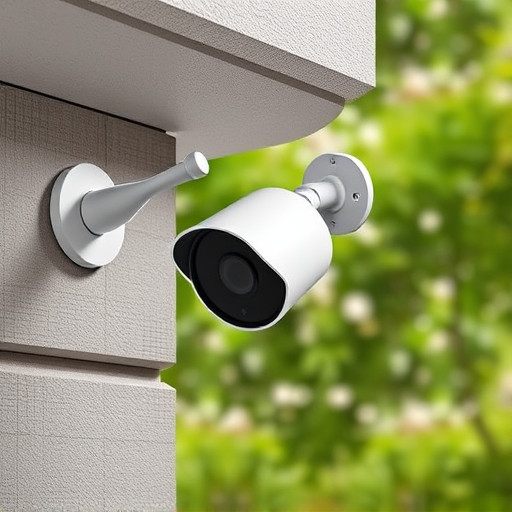
In today’s digital era, modern homes are not just about comfort; they’re about convenience and security. Understanding home security needs has evolved significantly from simple locks and alarms. Today’s homeowners seek integrated, smart solutions that provide 24/7 monitoring, real-time alerts, and remote access via their smartphones. With an increasing number of connected devices in the home, a robust home security system is no longer an optional add-on but a necessity for protecting personal belongings, family, and privacy.
The changing landscape of threats, including advanced technology-driven crimes, requires equally sophisticated solutions. Smart home security systems cater to these needs by offering features like motion sensors, glass break detectors, smart cameras with night vision, and automated door locks. These interconnected devices work in harmony to detect and respond to potential risks, ensuring peace of mind for modern homeowners.
The Role of Smart Technology in Home Protection
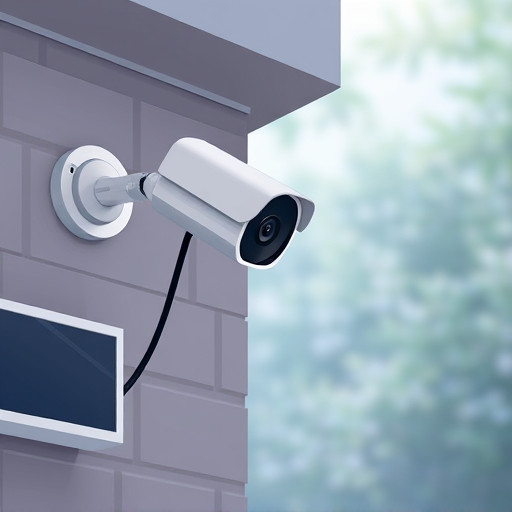
In today’s digital era, smart home security solutions are transforming the way we protect our living spaces. Integrating advanced technology into home security systems offers a multi-layered approach to safeguarding personal belongings and family safety. Smart devices, such as motion sensors, door and window contacts, and security cameras equipped with artificial intelligence (AI), provide real-time monitoring and alerts. These innovations allow homeowners to remotely access live feeds and receive instant notifications on their devices, empowering them to take immediate action should any unauthorized entry be detected.
The role of smart technology in home protection extends beyond basic detection and notification. Many modern security systems utilize AI algorithms for advanced threat assessment, learning patterns of normal behavior within the household to differentiate between genuine activities and potential intruders. Additionally, smart locks enable keyless access, enhancing convenience while securing entries with encryption protocols. By leveraging these technological advancements, homeowners can enjoy enhanced peace of mind, knowing their homes are protected by intelligent, interconnected security networks.
Benefits of Integrated Home Security Systems
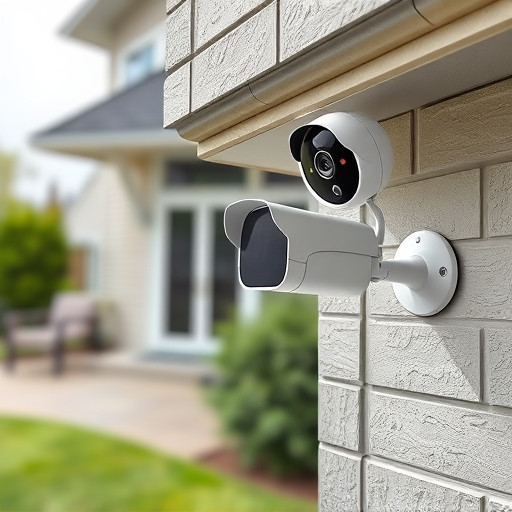
Integrated home security systems offer a multitude of benefits that go beyond basic protection. By combining various components such as surveillance cameras, motion sensors, and smart locks, these systems create a cohesive network that enhances overall security and convenience. For instance, motion sensors can detect unusual activity, triggering alerts on your smartphone, allowing you to respond swiftly.
Moreover, integrated systems enable centralized control, making it easy to monitor and manage different aspects of home security from a single interface. This not only simplifies the user experience but also provides peace of mind, knowing that all your security devices work harmoniously together. Such systems can also be tailored to specific needs, with advanced features like automated lighting adjustments during alerts or integration with smart home assistants for voice-controlled responses.
Essential Components for a Comprehensive Home Security Suite
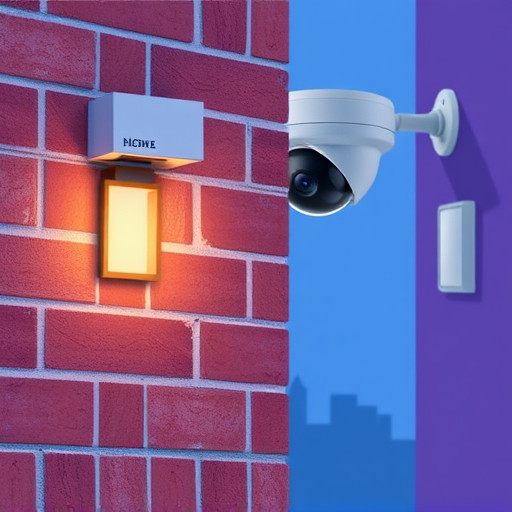
A comprehensive home security suite is more than just alarm systems; it’s an intricate network of interconnected devices designed to protect and monitor your space. At the heart of this system lie essential components that work harmoniously to provide robust security. These include high-quality cameras with advanced features like motion detection, night vision, and pan-tilt-zoom capabilities for comprehensive surveillance. Smart door locks offer secure entry and remote access control, ensuring only authorized individuals can gain entry.
Complementing these are smoke and carbon monoxide detectors that not only alert residents but also send notifications to your smartphone. Motion sensors throughout the home detect unusual activity, while a centralized control panel allows you to monitor and manage all security features via an intuitive app. These components collectively form a robust defense mechanism for modern homes, giving homeowners peace of mind and control over their safety.
Enhancing Privacy and Data Security Measures
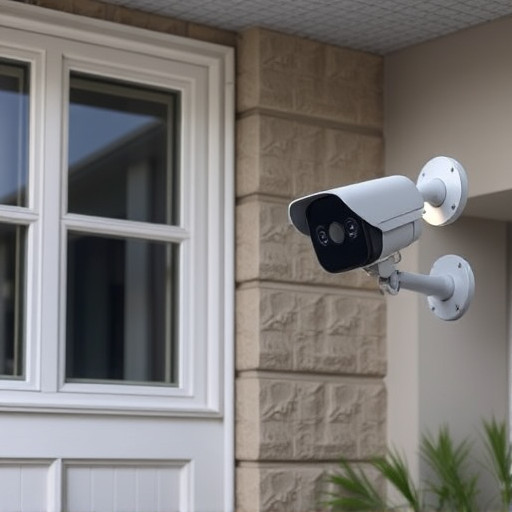
In today’s digital era, as home security solutions become increasingly integrated into our daily lives, enhancing privacy and data security measures is paramount. Smart home devices, while offering unparalleled convenience, collect vast amounts of sensitive information. Robust encryption protocols, secure network connections, and regular software updates are non-negotiable to safeguard personal data from unauthorized access. Users must also be mindful of their digital footprint, ensuring that privacy settings are optimized and only necessary data is shared with connected devices.
Advanced authentication methods like multi-factor authentication (MFA) add an extra layer of protection. Additionally, secure cloud storage for backup and remote access ensures peace of mind without compromising security. Regular security audits and keeping hardware and software up to date are essential practices to maintain the integrity of one’s home network, ultimately fostering a secure digital environment within the smart home.
Future Trends in Smart Home Security
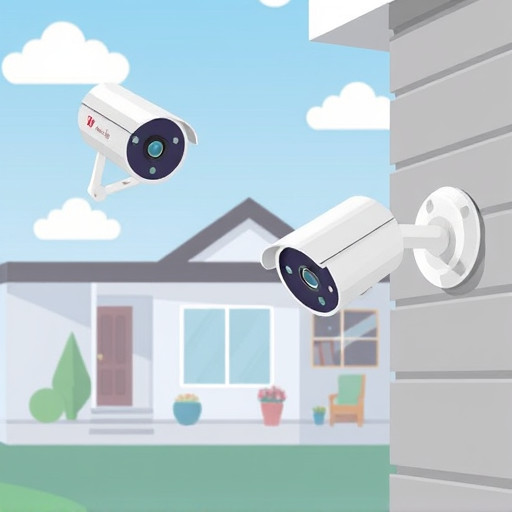
The future of home security is set to be even smarter and more integrated with our daily lives. As technology advances, we can expect to see a rise in AI-powered security systems that learn and adapt to homeowners’ routines. For instance, smart cameras equipped with facial recognition could differentiate between family members and intruders, triggering alerts only when necessary. Voice control will also play a bigger role, allowing users to arm and disarm security systems using simple voice commands.
Another trend is the increased use of interconnected devices, where various home security components—from door locks to smoke detectors—communicate with each other seamlessly. This creates a robust, unified system that can detect and respond to potential threats more effectively. Additionally, 5G technology will enable faster communication between smart home devices, enhancing real-time monitoring and response capabilities for enhanced home security.
Modern home security demands a sophisticated approach, and smart technology offers an unparalleled opportunity to enhance convenience and safety. By integrating various components, from motion sensors and camera systems to automated locks and advanced analytics, homeowners can create a comprehensive security suite. This article has explored the critical aspects of modern home security needs, the advantages of smart technology, and essential considerations for a robust security system. As we look ahead, future trends in smart home security promise even greater convenience, privacy enhancements, and improved data protection, making our homes safer and more secure than ever before.
